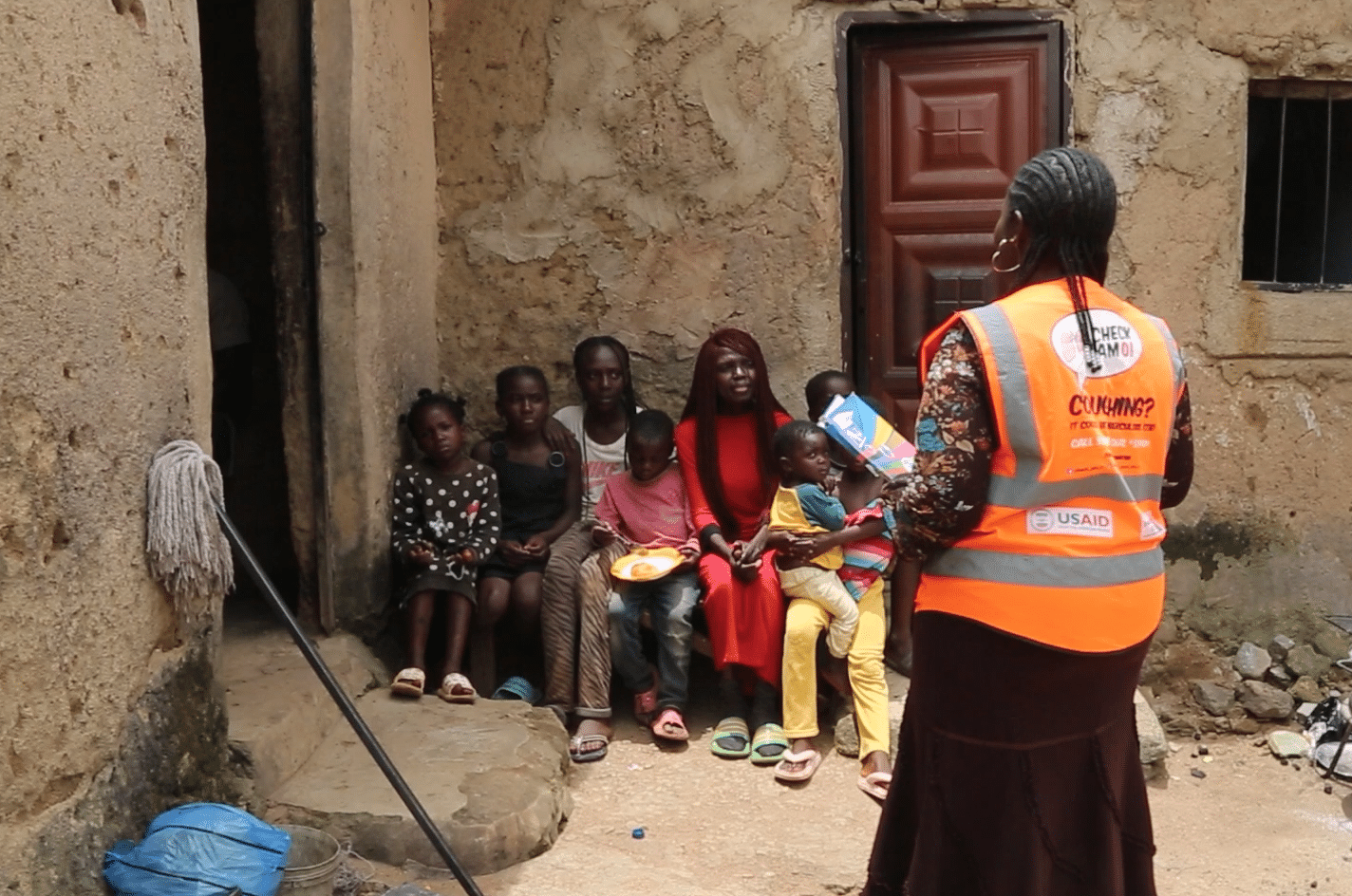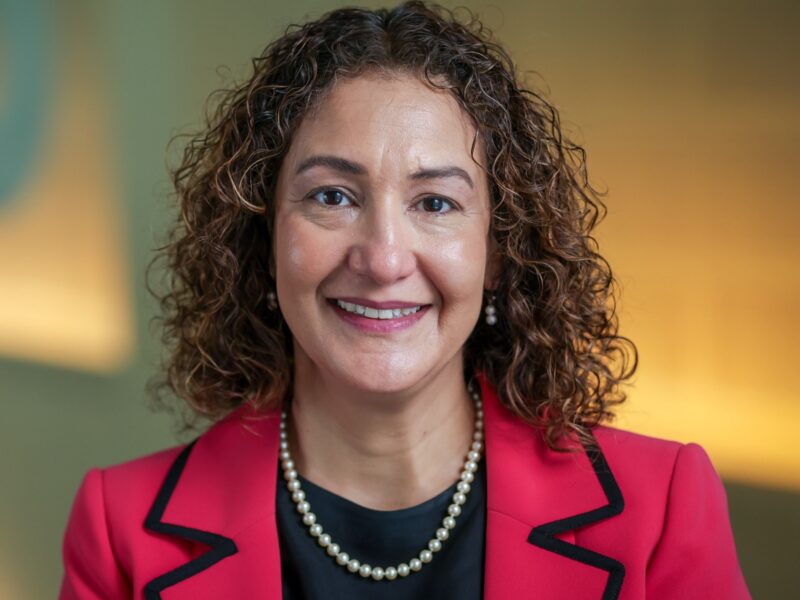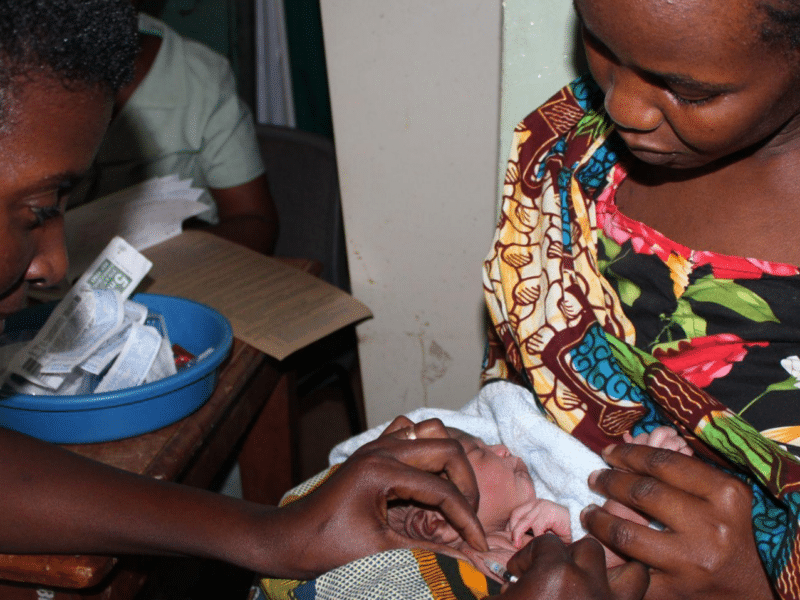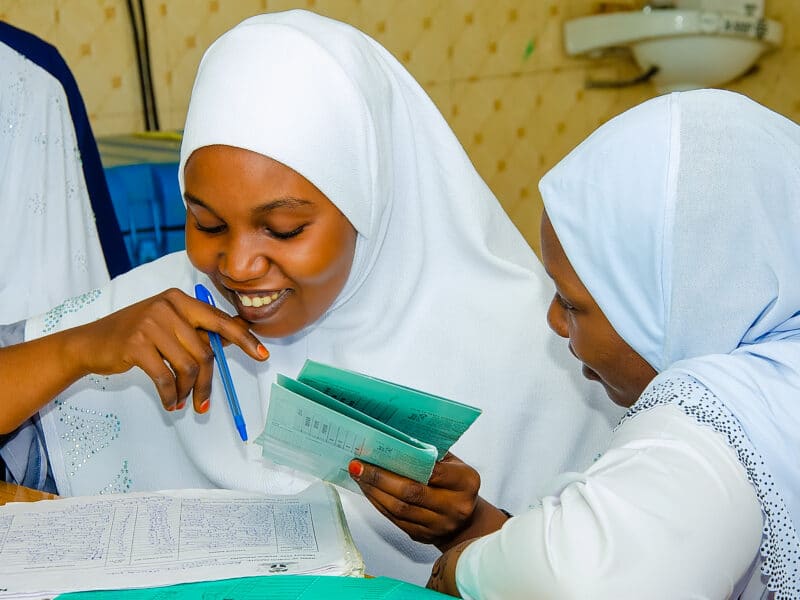When the community volunteers came to his apartment door in Ibadan, Nigeria’s third largest city, 29-year-old Dare tried to hide from them.
Once a vibrant young primary school teacher, Dare had become a shadow of himself. He had a cough that had been nagging for months but wouldn’t let up. He was pale, lean, and unable to work. He was running out of money. Neighbors had to persuade Dare to even come out and talk to the volunteers who looked at the shape he was in and immediately recommended he be screened for tuberculosis.
The volunteers were part of an activity led by the Johns Hopkins Center for Communication Programs’ Breakthrough ACTION-Nigeria and part of its effort to accelerate TB case findings in the country. The volunteers are reaching many Nigerian communities identified as TB hotspots with basic TB education as well as messages about screening and access to treatment.
Dare reluctantly accepted the help offered by the team, and he received a voucher to undergo a free chest x-ray at the nearby clinic.
The x-ray suggested pulmonary tuberculosis. With a confirmatory sputum test at the clinic, the providers immediately started Dare on TB treatment. His aunt supported him during the initial treatment period until he was strong and confident enough to go to the clinic by himself for his medications and complete his treatment.
“Such a person should not hide [tuberculosis] out of shame, as they would be doing themselves a disservice and causing more harm,” Dare says of the importance of being tested for TB. “I would have lost my life but for the mercy God showed me by sending Breakthrough ACTION-Nigeria workers to me.”
Dare has recently secured a teaching job at another school and is on his way back to financial stability. Dare, who is now hale and hearty, has become an advocate, spreading TB sensitization messages in his community using himself as a case study. He advises people who show signs and symptoms suggestive of TB to go to the clinic and get tested.
The continuing global challenges of TB control will be a focus this week, as part of the United Nations General Assembly gathering in New York. CCP’s work in Nigeria fits in with the theme of the high-level TB meeting: Advancing science, finance and innovation, and their benefits, to urgently end the global tuberculosis epidemic, in particular, by ensuring equitable access to prevention, testing, treatment and care.”
Back in Nigeria, through community-level demand generation for TB services in seven states, Breakthrough ACTION-Nigeria has referred 185,989 presumptive cases for TB testing, out of which 152,679 completed their referrals between October 2021 and June 2023.
In addition to providing community referrals for services, this strategic approach addresses the underlying causes of health issues (e.g., gender, stigma, harmful norms) by engaging individuals in dialogue at the household and community level and through mass media, social media and the National TB Call Center.
Another aspect of the work involves partnering with trusted community members who can help deliver messages about the dangers of untreated TB. Community members often turn to religious and traditional leaders, medicine vendors and other influential groups when sick and do not know what to do. Since 2020, the project has partnered with 2,300 medicine vendors, 1,255 religious and traditional leaders, and 631 local community groups and civic organizations in communities where TB is high. Breakthrough ACTION-Nigeria trains these individuals on the cause and symptoms of TB, how it is transmitted from one person to another, and what to do when someone from the community comes to them with fevers and persistent cough.
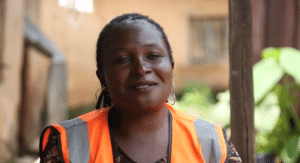
Tasiu Umar, a popular tea and noodles seller in Bauchi state, could not make enough money to feed himself or care for his aged mother and six siblings. Tasiu’s persistent cough, much stronger at night during his business’ peak working hours, had driven away his customers and friends.
He tried local herbs and cough medicines for a year. Nothing would make the cough go away. Eventually, Tasiu visited the shop of a medicine vendor who partners with Breakthrough ACTION-Nigeria. The medicine vendor thought Tasiu’s symptoms were likely TB and referred them to the nearest clinic, where he was diagnosed and began treatment immediately.
Tasiu is now back in business. Tasiu – along with other patients in the state – is now a volunteer TB ambassador. He refers people with symptoms to treatment centers and spreads awareness that TB is curable with free treatment provided by the government.
“As it is now, once I hear people coughing persistently, I instantly direct them to the treatment center,” Tasiu says. “So far, I have referred seven people, and four of them, who were positive, are currently on treatment.”
In one year, figures from Bauchi State showed that reported cases rose by more than 25 percent from 4,430 in 2020, to 5,652 in 2021. The numbers from 2022 are expected to be even higher. This is good news, because the more cases of TB that are diagnosed, the more people can be treated and the transmission in the communities slowed.
“It is amazing how evidence-based, community-centered social and behavior change interventions have changed TB case finding in Nigeria,” says Bolatito Aiyenigba, deputy project director for Breakthrough ACTION-Nigeria. “Truly the journey to a TB-free Nigeria has started.”

